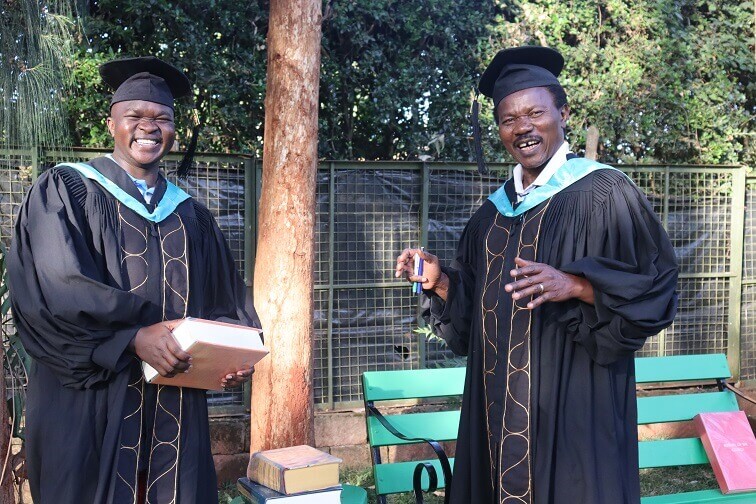November 30th, 2020 marked a very memorable day for us. As earlier planned, we met and proceeded to the School of Humanities and Social Sciences to collect our gowns in preparation for the graduation on 4th December, 2020. We collected our gowns from the same room we had met three years earlier for admission interviews. This, in effect, would mark the end of our formal study of the Master of Applied Philosophy and Ethics (MAPE).
After shaking hands with a brief introduction and pleasantries, following the admission interviews, we had exchanged our contacts and proceeded to have tea at the Cafeteria. We didn’t know that this brief encounter would lead to a very fulfilling journey of friendship and great support for each other in the academic work that awaited us. Remembering the wonderful learning and experiences we had picked up on our academic journey, we couldn’t help but pause to reflect on it as we collected our gowns.
Right from the start
Starting from the first semester of study, we complemented each other. Paschal, a father of a large family, brought with him many years of experience in the corporate world, both locally and internationally and Gabriel, the passion, knowledge and dexterity with the internet world which proved very useful in the areas of research and further reading. While Paschal had the “knack” of forgetting passwords and different ways of accessing the internet, Gabriel was available to fill that gap. On the other hand, whenever we needed practical examples to enhance our understanding of what we learned, Paschal was readily available with many. The combination proved to be a well-blended cocktail, which helped us navigate smoothly through the interesting journey of studying MAPE.
We would remind each other of classes, assignments, CATS and examinations. Whenever we realized that either of us had missed a class, a call would soon follow, demanding to know why that had happened. Whoever missed the class had the obligation to track the other one down to catch up with what had been taught. The one who had attended the class took this as a wonderful opportunity to teach the other and in the process reinforce his understanding of the subject matter in line with Plato’s philosophy that “teaching is the best way of learning”.
What makes a tree a tree?
Together, we spent many hours at the university campus and in our homes discussing many philosophical concepts taught in class. Studying together was the best gift that MAPE gave us. It made it easier to understand difficult concepts. Some of the concepts, especially in the area of metaphysics, anthropology and gnoseology required not only studying but also slow reflection and long discussions to comprehend them. Many times we did this seated under a tree or walking round the compound as Aristotle used to do with his students. We would ponder, for example, on the metaphysical jargon of the essence of a tree or the “treeness of a tree”: What makes a tree, a tree; the universal concepts of things that exist in nature, acquisition and use of knowledge, the difference between knowledge and wisdom etc. We rested in the comfort that any concept not understood in class would become clear during our study and discussions. Studying together proved very crucial during the time of research and writing of our dissertations. We needed to encourage each other almost daily, remind each other of the different concepts we had learned earlier which were important in our dissertation writing.
Our families were often fascinated by how we got deeply engrossed in what they found to be very interesting but difficult-to-understand discussions. On such occasions, we took the pleasure to explain to them concepts such as the proofs of the existence of God, the origin of the universe, the natural moral law, the sensitive dimension of human existence, freedom and evil, the thinking of different philosophers etc. Most times they could not understand and thought we were in a world of our own. This, indeed, is quite true as we discovered that philosophy goes into the deeper recesses of what ordinarily appears obvious. We also discovered that one needs some form of contemplative spirit to truly understand the richness of philosophy and appreciate its role in our everyday lives. At times the discussions would go on for inordinately long as we failed to reach a common understanding whereupon our spouses would prudently step in with an invitation to a meal or drink, thereby giving us the much needed break.
We were very proud of these long discussions as we believed they reflected how the father of classical Greek Philosophy, Socrates, led important philosophical discussions at Agora Square in Athens. One of us would take the position of Socrates, asking questions and the other the position of one of his protagonists, answering the questions.
Exhilarating reflections
Reflection on the evolution of philosophical thought over the centuries made the study of MAPE very exhilarating indeed. The study of MAPE made us realize clearly how the modern world is ruled by ideas that have evolved over the centuries: the meaning of life, human existence, human person, created world, common good, meaning of evil in society, different aspects of ethics, the world of politics etc.
Today we reflect, with amusement, on the many instances when we were the only students left at the university compound: the library, SBS basement or “Agora Square” – a specific place outside the cafeteria where we sat to discuss when all other places were locked up. On such occasions, the security personnel came to remind us that it was well past the time for having any students on the campus!
Looking back, all those long hours of study and discussion were well worth the effort. For those three years, we learned from philosophy many important and fundamental aspects of life that probably we would not have learned the whole of our lifetime. We acquired important philosophical knowledge, not just for career progression but more importantly for the sake of knowledge – philosophy qua philosophy. We strongly feel that our effort was well rewarded as this knowledge has immensely enhanced our understanding of the aspects of life that matter most.
This article was written by Paschal Manyuru and Gabriel Dinda, MAPE alumni.
If you have a story, kindly email: communications@strathmore.edu





